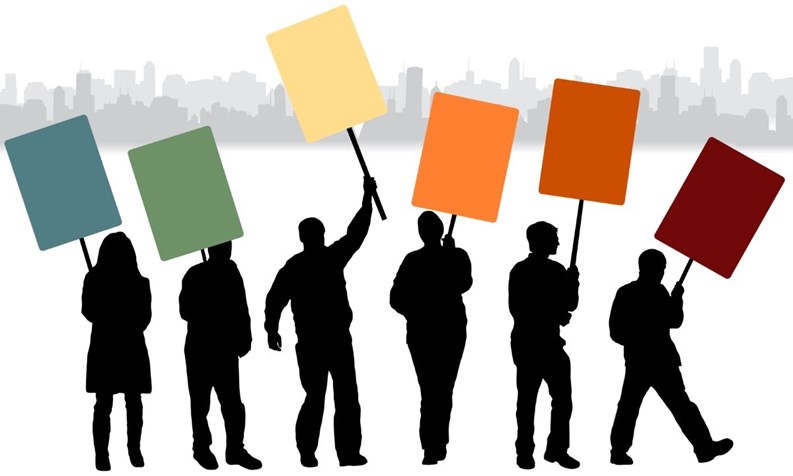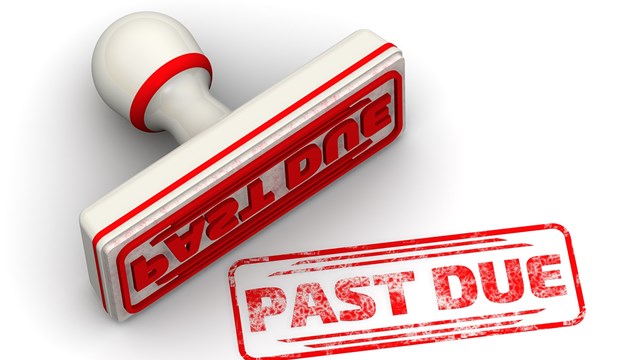The dreaded phrase “maintenance increase” are two words that most condo and co-op owners don't want to hear, but sometimes it is necessary for a building’s board to make the unpopular decision of raising fees. With rising operating costs, fuel and insurance rates climbing, and the need for periodic emergency repairs, raising maintenance fees often is not only a necessity, but may even be advisable. A good board has to follow one simple rule, it's time to raise fees when cash inflow is insufficient to cover cash outflow, even when utilizing reserve fund contributions.
“The real indicator for boards to know that it's time to increase the fees is when the budget is insufficient to include reasonable services,” says Chad Porter, an accountant with the firm of Kutchins Robbins & Diamond in Schaumberg. “The board has a fiduciary obligation and a legal obligation to determine what those anticipated expenses are going to be; determine what the adequate level of reserve funding is, and that is often a hard pill to swallow, but they can't lose sight of that. They can't let that fear of their neighbors’ animosity overcome their fiduciary responsibility.”
Having low maintenance fees can be an attractive selling point. Some buildings in Chicago may pride themselves on not having increased maintenance for decades, but maintenance fees that are too low can cause a host of problems on its own—from issues with the 80/20 rule to coming up short in cases of emergency.
“Board members have to realize that they're running a business,” says Steven Silberman, director and vice president of the accounting firm of Frost, Ruttenberg & Rothblatt, PC in Chicago. “While board members may not want to raise the fees of their neighbors, they have a responsibility first and foremost to the business of the community.”
Time Has Come
So how does a board know when that time is? Sometimes it’s obvious, sometimes not so much. If the building is hemorrhaging money in nickel-and-dime repairs due to a physical problem that needs a decisive, long-term solution, an increase may be put into effect. Other times, a good board will notice that a potentially bad situation is ahead, and fixes the problem with an increase before the problem mushrooms into a full-blown crisis.
“When there is insufficient funds available to pay the normal operating expenses for the housing company, it is time to raise maintenance,” says Porter, “It is the board's responsibility to maintain a solvent budget for proper operations of the association.”
Typically, a board determines the increase based on their proposed budget for the coming year. The increase is divided by the proportionate shares or interest in the property that each shareholder/ unit owner has. There is no standard schedule for this purpose. An experienced board should have the knowledge to review the monthly operating reports submitted by the property manager and be aware of the variances from the budget to actual expenses for the given month and year to date.
“It comes up pretty often, it really is a balancing act that boards have to engage in,” says Matthew Moodhe, Esq., of the Buffalo Grove-based law firm of Kovitz Shifrin Nesbit, which specializes in the representation of housing associations. “One of the things that boards have to do is they have to remember that it's not a political decision, and that it's not a popularity contest.”
In Moodhe's opinion he believes that a lot of boards do it backwards—in other words they look at their current assessment and then they try to back their way into their current assessment for the next year, or impose a small increase. In doing that though, boards may not be meeting their fiduciary obligation to the association. Moodhe says, “Boards need to look at what their anticipated expenses are going to be and put them out on the table and trim them out to the best of their ability. Then the board must determine what that assessment is going to be, whether it remains the same as last year or whether there is going to be a significant increase.”
If after looking at the numbers the board decides that it does need to levy a significant increase, then it is recommended that the board go back and look at their expenses to try to find where the budget can be reduced in some fashion.
“There's a natural tendency and motivation for board members not to impose unreasonable assessment imcreases because they're unit owners as well and they themselves don't want to pay any unnecessary assessments,” says Moodhe.
“One of the most best and important things a board can do is,” advises Silberman, “is to have a reserve study done. This will give the board the information necessary for proper financial planning. Additionally, it would provide the board with the information they need so that they can plan maintenance fee increases in such a way that it would not become too serious of a financial burden for the unit owners.
Danger Zone
A good board in finalizing their budget for the upcoming year will generally raise maintenance fees and/or common charges if necessary to balance the budget. These small annual increases help to keep up with the ever-increasing cost of operating and maintaining a building, and are often wisely recommended by accountants and financial advisers. Cost-of-living increases such as these also help control massive increases in the future and help keep down needed assessments.
“It’s not only an option—it is the necessary course of action,” says Porter. “This is what most boards should be doing. If not, large increases could come about in a few years—and double-digit increases can represent real financial challenges for owners.”
“If there are no annual increases to balance the budget, the dangers are numerous,” says Silberman. “Not being able to pay the bills, mortgage, utilities, taxes, etc., will jeopardize the financial stability of the association. Additionally, the board will have no choice but to institute a very large increase, which will be a hardship for some residents.”
Importance of Reserve Studies
The purpose of the reserve fund is to provide a source of money when major repairs or upgrades to the development are needed. Porter recommends that, “The reserve fund should be maintained at a level that will provide for future major repairs and replacements.” He also believes that a reserve fund study is one of the most effective tools a board has when it comes to planning the associations budget.
“I typically recommend a professional reserve study to provide estimated remaining useful lives and replacement costs of the common property components, as well as the recommended amount of funds to be contributed to reserves each year to accommodate such estimates,” says Porter.
How Much is Too Much?
In Illinois, there is a provision in the Illinois Condominium Property Act, which does provide some redress if a fee increase is 15 percent or more. Unit owners have a 14-day window to act after a 15 percent or more increase is passed by an association board. During the 14-day period, unit owners can prepare a petition and if that petition is signed by more than 20 percent of the owners, and the unit owners file this petition with the board, the board is required by law to call a special meeting for all unit owners to hold a vote regarding the fee increase. At that special meeting, the unit owners can veto the fee increase—but only if there is a majority of unit owners voting to veto it.
“It's difficult to get,” says Moodhe, “and we rarely see 15 percent plus increases overturned or rejected, because invariably what happens is that after the board authorized the increase—all the unit owners burns white hot—but then the board informs the unit owners what the increase or assessment is for and explains it to them. Usually the unit owners calm down when they get a little more information.”
Other Alternatives
Raising maintenance fees aren’t the only solution boards can come up with to raise money. Refinancing the underlying mortgage can reduce the interest rate of the mortgage and reduce the monthly payment. Additionally, refinancing the underlying mortgage on the building can raise funds for the reserve account to help with capital improvements. Some boards have opted for opening home equity lines of credit. In this scenario, the board would have access to a large amount of money if the board is confronted with a substantial expenditure. If the board has to use the line of credit rather than increasing maintenance fees substantially to counterbalance the expenditure, the board would only have to raise the maintenance fees enough to cover the monthly payments toward the home equity line of credit.
“If there is room on the roof of the building for cell towers, the board can lease that area out,” says Silberman. “If there is a garage, the board can raise the parking fees to increase income.”
The Effects of 80/20
The 80/20 rule—namely Section 216 of the U.S. Internal Revenue Service (IRS) tax code—affects co-ops, and states that to avoid penalties, at least 80 percent of a building’s revenue must come directly from the shareholders, and no more than 20 percent of its income can come from outside sources—like first-floor retail tenants, parking garages, or leasing exterior space for billboards.
Moodhe believes that entertaining alternative sources of financing is a great idea to prevent increases in fees, but he warns that, “The board has to maintain their primary purpose as a not-for-profit organization. When they start generating revenue from outside sources other than assessments, a red flag may be raised by the IRS and the board runs the risk of threatening their not-for-profit corporate status. But that doesn't mean they can’t generate income from other sources.”
Final Thoughts
In essence, a good board will recognize what their responsibilities are and communicate effectively with shareholders/unit owners the status of the budget. If the owners are a part of the process, and are informed what is going on, then when the board is faced with the decision that maintenance fees must be increased, the owners will be more understanding. Higher maintenance costs are no picnic either for the unit owners or the boards that implement them but unfortunately higher costs are something that everyone should realize is a necessity in the majority of condos in the Chicagoland area these days.
A good board creates a reasonable budget, works at lowering certain out-of-control costs, and then arrives at a maintenance increase that will hopefully keep the building on solid ground and running smoothly for years to come.
Jonathan Barnes is a freelance writer and a frequent contributor to The Chicagoland Cooperator. Associate Editor Liam P. Cusack contributed to this article.







Leave a Comment